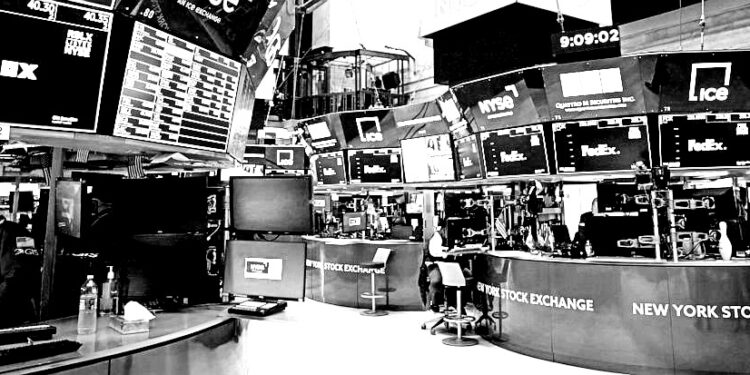Wall Street is slipping Wednesday following some mixed earnings reports from big U.S. companies and another signal that inflation remains hot around the world
Wall Street is edging lower Wednesday following mixed earnings reports from big U.S. companies and another signal that inflation remains painfully hot around the world.
The S&P 500 was 0.2% lower in morning trading, slicing off some of the gain it’s built this week. The Dow Jones Industrial Average was down 70 points, or 0.2%, at 33,906, as of 10:45 a.m. Eastern time, while the Nasdaq composite was 0.3% lower.
Tesla weighed heavily on the market after the electric-vehicle company cut prices for its two top-selling models, its fourth price cut in the U.S. this year. That could be a signal Tesla is trying to spur sales amid shifting U.S. tax credits for electric vehicles. Tesla shares fell 1.7%.
Netflix fell 3.1% after reporting weaker revenue for the latest quarter than analysts expected, though its profit topped forecasts.
Elevance Health dropped 3% despite reporting stronger profit and revenue than expected. The health insurer gave a forecast for earnings this year that fell short of some analysts’ expectations.
Expectations coming into this earnings reporting season were particularly low. Analysts forecasted the sharpest drop in earnings per share for S&P 500 companies since the pandemic torpedoed the global economy in 2020. Profits are under pressure because inflation is high, interest rates are much higher than a year ago and portions of the economy are slowing.
Still, the easy expectations mean the majority of companies have been topping forecasts, as is usually the case.
Intuitive Surgical leaped 12.5% for the biggest gain in the S&P 500 after delivering stronger profit and revenue for the latest quarter than expected.
Abbot Laboratories rose 6.6%, Nasdaq Inc. gained 3.4% and United Airlines flew 3.2% higher after they also topped Wall Street’s expectations for profits.
Particular focus has been on the health of banks after higher interest rates helped lead to the second- and third-largest U.S. bank failures in history last month.
The industry’s behemoths have largely reported better results than expected, with several saying they benefited from the industry’s turmoil as customers moved deposits to them and away from smaller banks that seemed at greater risk.
The fear was how much pain smaller, regional banks would show in their quarterly reports, including how many of their customers fled.
Western Alliance Bancorp., a Phoenix-based bank whose stock plunged nearly 64% over a five-day stretch last month, surged after it said deposits stabilized after an initial drop and have been rising in recent weeks. Its stock jumped 17%.
Other financial companies were mixed following their earnings reports.
Citizens Financial Group fell 1.5% after reporting weaker profit and revenue than expected. Synchrony Financial rose 1.7% after reporting better revenue than expected but weaker profit. Morgan Stanley dipped 0.8% despite topping forecasts for both profit and revenue.
The Nasdaq composite was lagging the market as high-growth and tech stocks had some of the market’s sharper losses. They were hurt in part by higher yields in the bond market, which rose after a report showed U.K. inflation remained above 10% for a seventh straight month.
Central banks around the world have been raising rates at a furious pace for more than a year, and the wide expectation is for the Federal Reserve to raise short-term U.S. rates again at its meeting next month. High rates can stifle inflation, but only by slowing the entire economy, raising the risk of a recession and hurting prices for investments.
In the bond market, the yield on the 10-year Treasury rose to 3.61% from 3.58% late Tuesday. The two-year Treasury yield, which more closely tracks expectations for the Fed, rose to 4.27% from 4.20%.
In markets overseas, stock indexes were mixed in Europe. Asian stocks were mostly lower.
An earlier report showing China’s economic growth accelerated in the latest quarter has not had much of an impact on share prices. While consumption and retail sales have grown, other indicators, such as industrial output and fixed-asset investments, were weaker and indicate an uneven recovery.
“It may still be a worst-is-over story, but recovery has shown to be more gradual than a one-shot wonder,” Yeap Jun Rong, market analyst at IG, said in a report.
Source: abcNEWS











Recent Comments